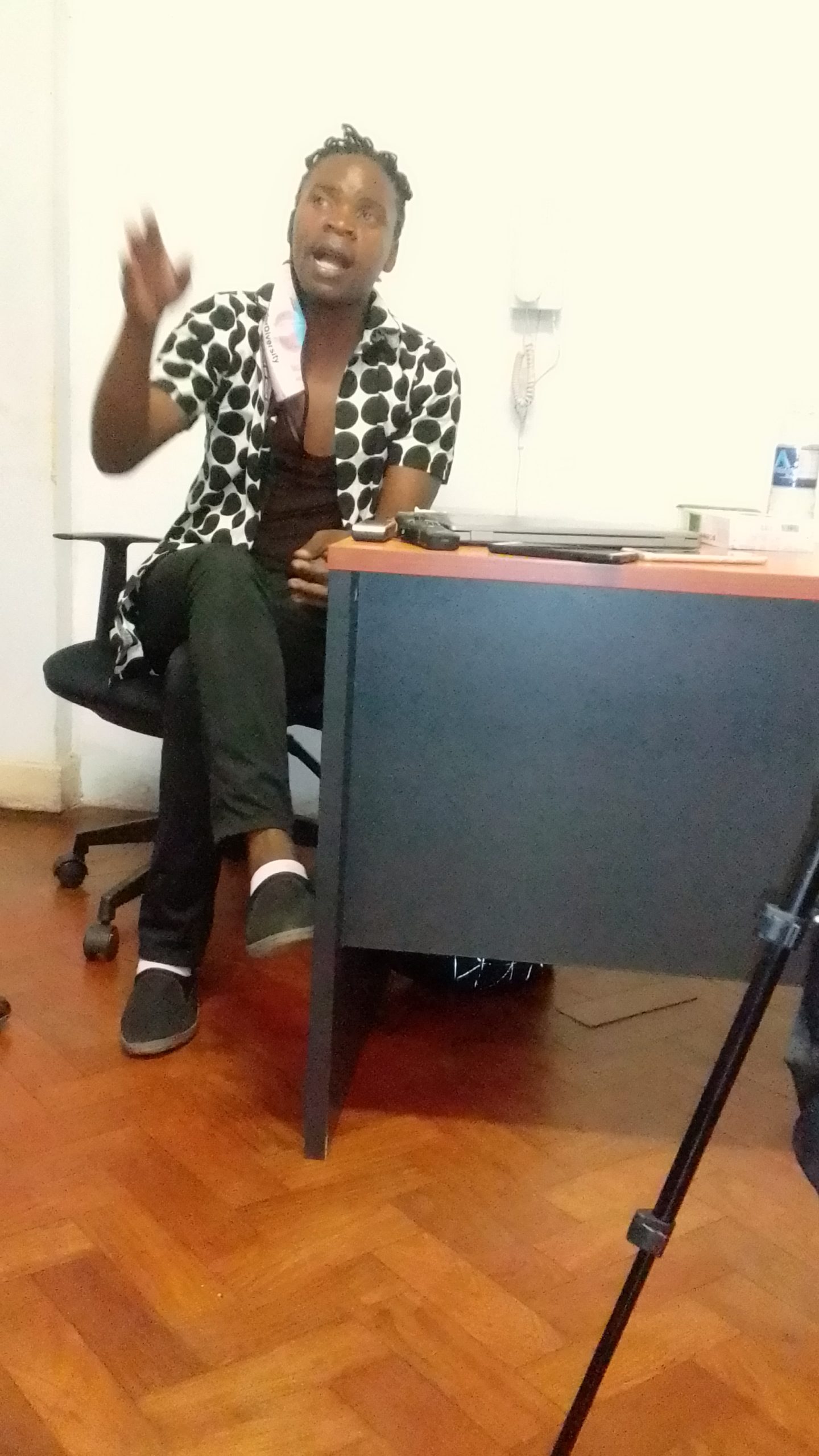|
Getting your Trinity Audio player ready...
|
By Joyce Mukucha
The transgender people have bemoaned stigma and discrimination from family members, friends and the community at large highlighting that it had a negative effect on mental health.
The trans community is incredibly diverse. Some trans people identify themselves as trans men or trans women, while others may describe themselves as non-binary, genderqueer, gender non-conforming, agender, bigender or other identities that reflect their personal experience.
Some of them take hormones or have surgery as part of their transition, while others may change their pronouns or appearance.
Speaking during a Health Communicators Forum media cafe in Harare on the 17th of December 2021, Trans and Intersex Rising Zimbabwe(TIRZ) Programs Manager, Queen Bee Chihera who is a transwoman said the way members of the community fail to understand that their gender identity is different from the sex assigned to them at birth leave unerased scars on their hearts.
“The discrimination against trans communities had a strong negative association with self-assessed mental health. The names transgender people are called as well as the deregatory words that are used on us lead to mental breakdown which in most cases lead to drug and substance abuse. This is being caused by loneliness, depression, isolation and hiding identity among others,” she said.
During these unprecedented times of the global Covid-19 pandemic, especially on lockdowns, Queen Bee pointed out that due to stigmatization, the transgender people encountered a plethora of challenges in as much as accessing health services indicating that uptake of Pre-Exposure Prophylaxis, ART and hormonal therapy was distracted leading to mental health challenges.
“We were much affected during lockdown period. Police officers at mounted roadblocks harrassed the majority of us. Others wanted to go and collect their hormonal supplements and some wanted to go and collect their antiretroviral drugs but the roadblocks for instance at Warren Park, Chitungwiza and Mabvuku were very strict especially after noticing that you are transman or teanswoman. During that time, a lot of people from our trans community who are living with HIV defaulted. This kind of stigma is the one which affect us an extent that most people suffer from brain drain and become mentally ill.”
Accessing mental health and counselling support, she said was still a challenge especially during this Covid-19 era.
“The community support system is not strong. Our community is one of those groups which require physical interaction but we are now forced to go virtual and many activities such as counseling sessions are also being done online and others don’t have smart phones.
“This means whenever one encounters a challenge which requires him or her to access counseling, he or she may fail to get it and a result suffer from depression which then lead to mental health problems. As a country, we still have a long way to go when it comes to understanding key populations particularly trans people, more awareness and advocacy is needed.”
In an effort to fight this, Queen Bee said the organisation was having some programs such as China Chemadzimai Out which is aimed at giving transwomen an opportunity to air out the problems they face on their day to day lives to ensure that cases of mental illness in the community are reduced.
She also highlighted that TIRZ was working tirelessly in as much as empowering and nurturing the families and allies from which the transgender and intersex communities arise from so that they can easily learn to accept and support them.
Regarding inclusion, Queen Bee applauded the Ministry of Health and Child Care and other organisations such as Population Services International, the Centre for Sexual Health and HIV/AIDS Research Zimbabwe and Wilkins Hospital among others for extending them unwavering support when it comes to accessing critical health services.
“We give much thanks to the Ministry and all these organisations for always being by our side. They have been playing a significant role when it comes to ensuring that our colleagues get their medicines and receive other services. However, there is need for concerted efforts to protect this community especially transwomen because they are at high risk of contracting HIV since they are very vulnerable to abuse. There is need to ensure that condoms and other contraceptives are readily available and easily accessible to them,” Chihera explained.
Founded in early 2017, TIRZ is a community-based, youth, trans and intersex led organisation which envisions a Zimbabwean society that treats trans-diverse and intersex people equally empowering them to live to their full potential.
It fulfils its vision through activism, service- provision, advocacy, and community development and empowerment
TIRZ objectives include providing various forms of support to meet the needs of the sex- and gender-diverse community of Zimbabwe, increasing awareness, and advocating for the rights and identities of the sex- and gender-diverse community of Zimbabwe and advocating for the equitable access for the sex- and gender-diverse community of Zimbabwe to socio-economic services.






